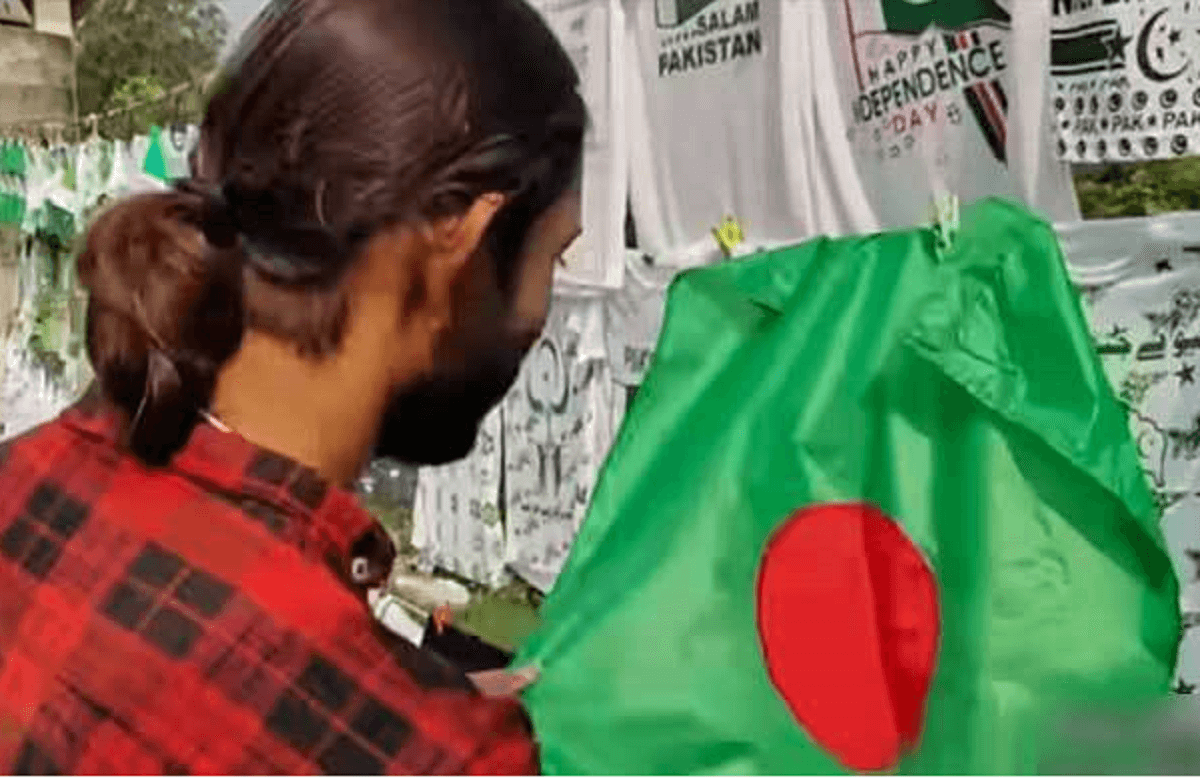The Fragile Facade of Bangladesh-Pakistan Relations
Noman Hossain | 18 October 2024
The much-publicized 2020 phone call between Prime Ministers Sheikh Hasina and Imran Khan, alongside the appointment of a new Pakistani High Commissioner to Dhaka, have been hailed by some as signs of a thaw. However, these gestures ring hollow when measured against the weight of history and Pakistan’s continued refusal to address its dark legacy in Bangladesh’s birth meaningfully. The relationship between these two nations remains inextricably bound to the bloody events of 1971, when East Pakistan waged a war of independence to become Bangladesh. The nine-month conflict saw widespread atrocities committed by Pakistani forces and their local collaborators, resulting in millions of deaths and leaving scars that have never truly healed.[2] Pakistan’s stubborn refusal to formally apologize for these actions, or even to fully acknowledge the scale of the violence, stands as a glaring obstacle to any genuine reconciliation.
Bangladesh’s annual observances of Victory Day on December 16th and Martyred Intellectuals Day on December 14th serve as poignant reminders of the immense human cost of independence. These commemorations are not mere historical footnotes but living testaments to the enduring pain and anger many Bangladeshis feel towards Pakistan. The systematic killing of Bengali intellectuals in the war’s final days, remembered on Martyred Intellectuals Day, is a particularly stark reminder of the calculated brutality employed by Pakistani forces to cripple the emerging nation.[3] Against this backdrop, recent diplomatic niceties appear inadequate and almost insulting. Pakistan’s consistent evasion of responsibility for the events of 1971 undermines any claims of genuine desire for improved relations. The Pakistani establishment’s tendency to downplay or outright deny the scale of atrocities committed flies in the face of overwhelming historical evidence and the lived experiences of millions of Bangladeshis.
The execution of Jamaat-e-Islami leader Abdul QuaderMollah in 2013, following his conviction for war crimes, laid bare the vast gulf in perceptions between the two nations.[4] Pakistan’s parliamentary resolution condemning the execution as a “judicial murder” sparked outrage in Bangladesh and demonstrated a profound lack of sensitivity to Bangladesh’s quest for justice for 1971 war crimes. This incident highlighted how Pakistan continues to view the events of 1971 through a distorted lens, failing to recognize the legitimacy of Bangladesh’s grievances.
Beyond the emotional toll, tangible, unresolved issues stemming from the 1971 conflict continue to fester. Bangladesh’s long-standing claims for a share of assets from the united Pakistan era, estimated at billions of dollars, remain unaddressed. The fate of “stranded Pakistanis” – non-Bengali Muslims who remained in Bangladesh after 1971 but sought Pakistani citizenship – is another thorny issue that has dragged on for decades. Pakistan’s failure to engage constructively on these matters belies its professed desire for improved relations. The geopolitical realities of South Asia further complicate this fraught relationship. Bangladesh’s increasingly close ties with India – Pakistan’s arch-rival – have been a source of concern for Islamabad. However, Pakistan’s own deepening alliance with China, which has raised concerns in both Dhaka and New Delhi, exposes the hypocrisy of its stance. Pakistan seems to expect Bangladesh to prioritize bilateral ties while itself pursuing relationships that potentially undermine Bangladesh’s interests.
Moreover, Pakistan’s approach to reconciliation often appears tone-deaf and self-serving. Statements from Pakistani officials about moving forward or leaving the past behind fail to acknowledge the depth of hurt and the need for accountability. Such rhetoric comes across as an attempt to sweep history under the rug rather than engage in genuine reconciliation. The domestic political landscape in both countries further complicates matters. In Bangladesh, any moves towards closer ties with Pakistan are likely to face intense scrutiny and potential backlash.
In Pakistan, there seems to be a lack of political will to honestly confront the nation’s role in the events of 1971 honestly. The military, which wields significant influence over foreign policy, is vested in maintaining the official narrative that downplays its culpability. This reluctance to engage in honest self-reflection severely limits the potential for meaningful progress in bilateral relations. The economic argument for improved ties, often touted by proponents of rapprochement, also falls short under scrutiny. While enhanced trade and cultural exchanges could potentially benefit both nations, the current state of relations and lack of trust make significant economic cooperation unlikely. Moreover, Bangladesh’s impressive economic growth in recent years has been achieved without substantial engagement with Pakistan, calling into question the necessity of closer ties for Bangladesh’s continued development.
Pakistan’s handling of the 1971 issue also raises broader questions about its approach to regional relations and its ability to reckon with historical wrongs. The refusal to apologize for or fully acknowledge the atrocities committed in Bangladesh is part of a larger pattern of historical denialism that undermines Pakistan’s credibility on the international stage. For Bangladesh, maintaining a degree of distance from Pakistan has been a consistent and arguably necessary feature of its foreign policy since independence. This stance is rooted in historical grievances and Bangladesh’s desire to forge its own identity distinct from its former status as East Pakistan. Any moves towards closer ties with Pakistan risk undermining this hard-won independence and unique national identity.
The current state of Bangladesh-Pakistan relations is characterized more by unresolved tensions and historical baggage than by genuine progress towards reconciliation. The recent diplomatic niceties, while potentially well-intentioned, fail to address the core issues that continue to divide these two nations. Until Pakistan is willing to confront its past actions honestly and take concrete steps towards making amends, the prospect of truly normalized relations with Bangladesh will remain a distant and likely unreachable goal. The ghosts of 1971 continue to haunt this relationship, and no amount of diplomatic pleasantries can exorcise them without a genuine commitment to truth, justice, and reconciliation.
Noman Hossain, Author.
This article was originally published on The Khaama Press.
Views in this article are author’s own and do not necessarily reflect CGS policy.
